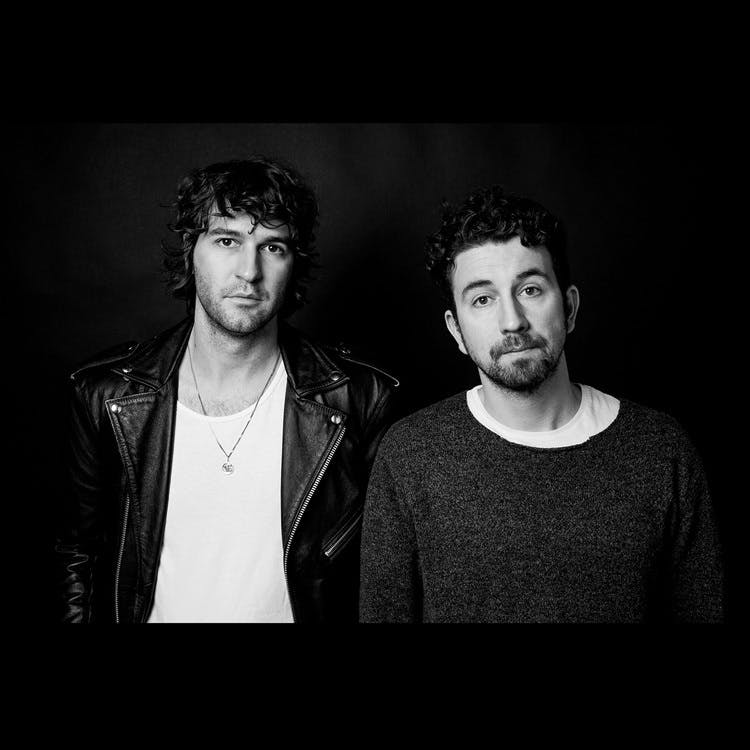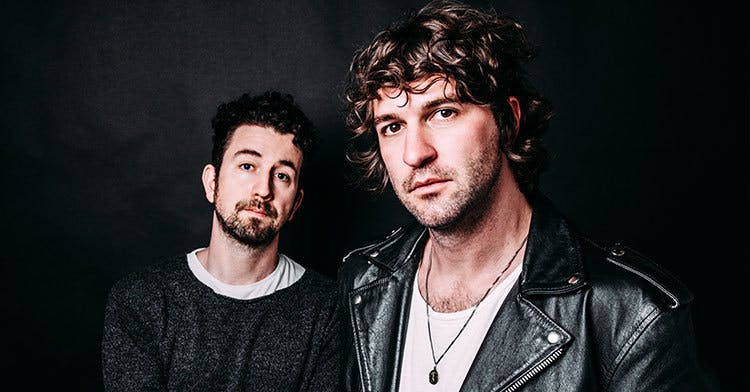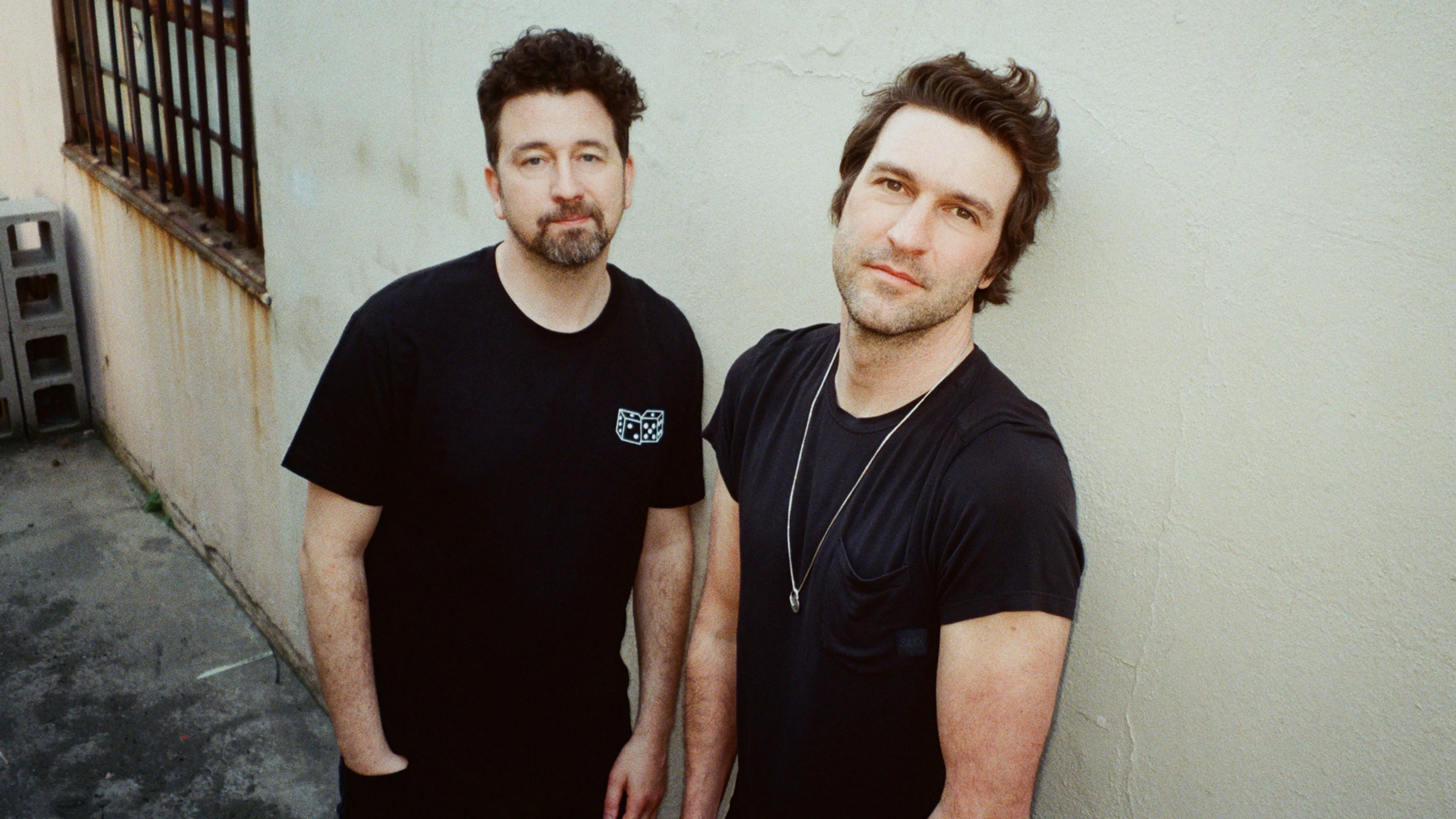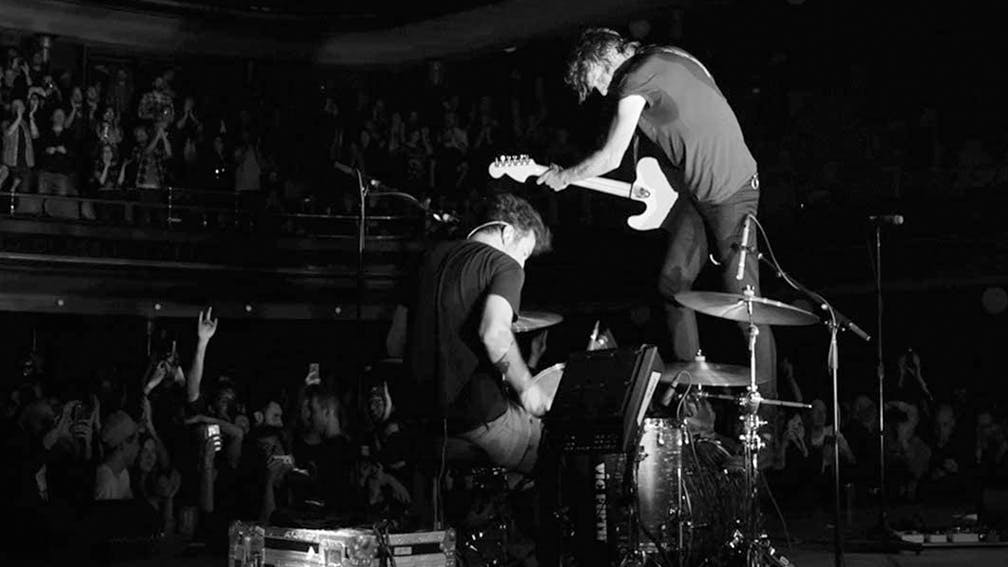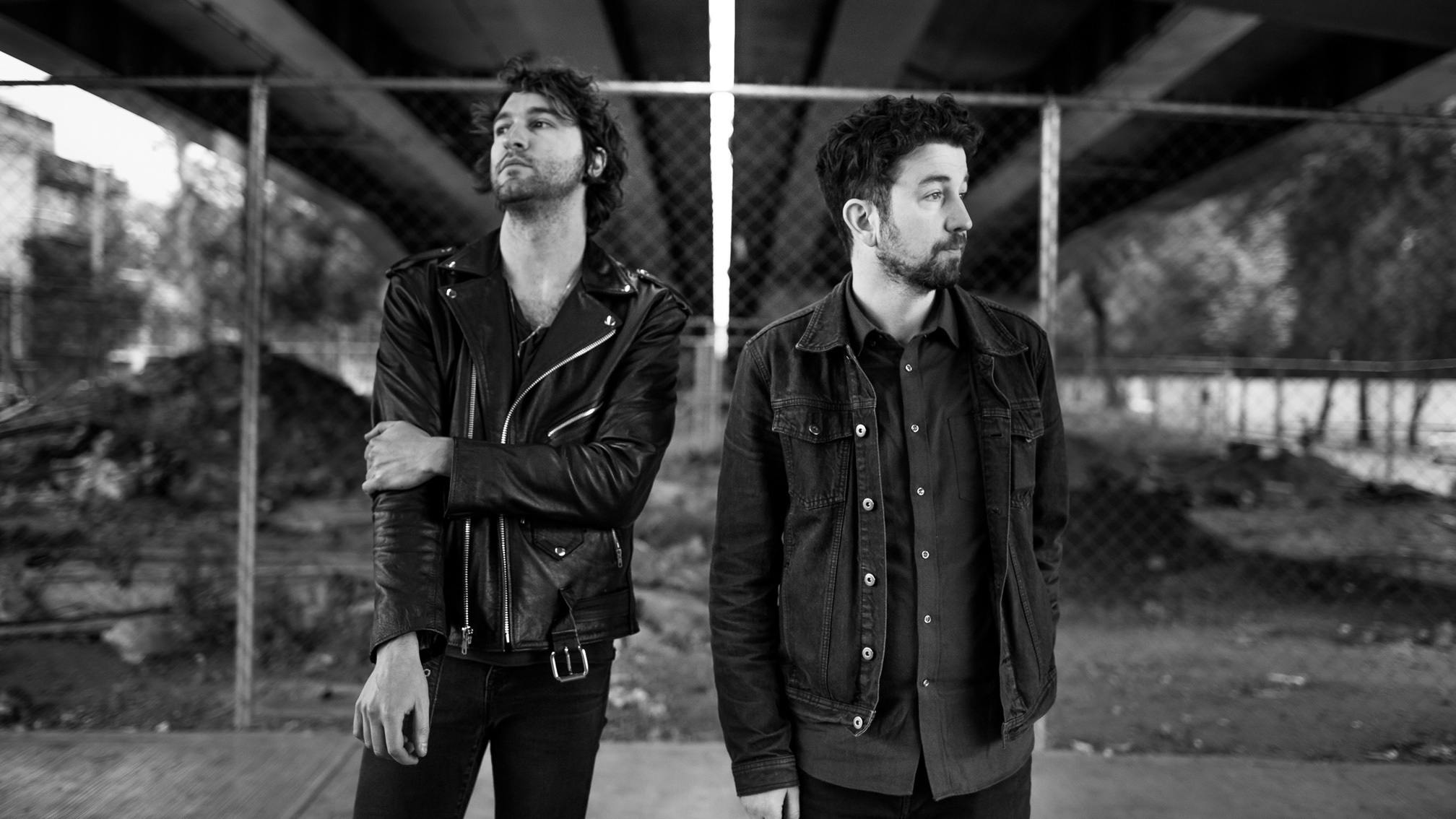And how have the people been responding to the new songs live?
Brian: “I think the songs that are more like the older songs are definitely going over really well, just because people are like, ‘This is what a Japandroids song is supposed to be.’ They’re easier to wrap your head around. Arc Of Bar is a good example of something more different from what we typically had done in the past, and there’s a bit more trepidation and some people don’t quite know what to think. That’s definitely a harder song to enjoy the first time live without knowing it – especially when we’re still learning how to play it! But I’m confident next year when the album’s out that it’ll go down really well. It varies, but everybody knows what it’s like to go to a show of a band they love and hear new songs – it’s kinda weird!”
David: “Everybody I’ve talked to after the show, y’know, fans who have come up to us and had a chat, seem really excited about the new songs. We’ve grown pretty accustomed to having this very intense dialogue with our fans when we’re up onstage, when they’re singing along to all our songs, so it’s always a bit tricky to read the crowd when we’re playing the new ones because people are much more subdued. They’re paying attention and they don’t know the words so they can’t sing along, so it’s interesting to try and get a read on how it’s going – especially for the ones that are more of a departure.”
Brian: “I like to think that when they look back on that, in a couple of years from now when the record’s been out, it will seem very cool that they’re like, ‘I remember when they played this song for the third time every and they were still trying to figure it out!’ I think it’ll have some charm in the future hopefully.”
Musically it’s a departure, but lyrically what sort of a place does Near To The Wild Heart Of Life come from?
Brian: “It comes from the same place that all the records come from in that it’s just a snapshot of a time and place. Post-Nothing, our first record, was a snapshot of us at that moment, and Celebration Rock was the same thing. The last time we wrote a batch of songs was 2011, five years ago, so a lot has happened in those five years – both personally and professionally. We got older and our lives changed, and of course we toured Celebration Rock for almost two years and saw a lot of the world and met a lot of new people. By the time you actually sit down to start working on a new batch of songs you think back to the last time you did this, and you’re trying to capture a snapshot of who you are at the time but also sum up all that time that’s gone by. Some songs are taking all of that time and condensing it into a four-minute rock song, and other songs are a snapshot of where I was in 2014 or 2015 – like, ‘This is where I am, living in this city, at this age, with this person and dealing with this experience.’
“More specifically, we’re getting older and there’s a more natural tendency to write in a slightly more – for lack of a better word – ‘serious’ manner. The album’s a bit more reflective. People often talk about the previous albums and previous lyrical concepts as ‘nostalgic’ or ‘looking back’, where we’ve written about a time that has long passed. But I feel like this album is very much written in the present and I think that’s a pretty massive difference, generally speaking. Most of the songs Celebration Rock are looking back in some way, but these ones are about that moment in time when it was written.”
Is Near To The Wild Heart Of Life all positive, or has any of the negative goings-on in the world seeped into it?
Brian: “I wouldn’t call this album ‘negative’ or ‘dark’, but I do think it’s probably the darkest record that we’ve written. In the old days I would approach writing a song and typically take the positive side of the story and disregard the negative part. All of the Japandroids songs have a positive and negative side, just like every story has, but I used to just disregard the negative one in favour of the positive, so there was a real positive vibe about the whole record. Of course there’s a lot of famous bands that do the opposite, like it’s all focused on the dark or sad element and they disregard the positive side, and I think this is the first time – at least from my perspective – where we’re trying to put both sides in the same song. So the songs will have a certain darkness but also a lightness coexisting. The first song on the record has verses that the vibe is one of doubt, fear and uncertainty, and then conversely the choruses are the opposite – they’re a bit more triumphant and ‘Fuck it!’ Then you get to the next verse and it’s like, ‘Oh, I don’t know…’ You’re beginning to see a more complete story or something like that. So maybe it’s slightly darker for us, but I still think the general vibe is quite positive.”
Is that because you’re getting older and your perspective has changed?
Brian: “I’ve passed a point in my life where I used to think life was better when I was younger. I’m very content in the age I am and the life I have and how I live, and I don’t look back on anything as better than it was right now. Obviously at some point in the past I didn’t feel that way – like Younger Us, which I obviously wrote when I was looking back. It’s called Younger Us, so it’s pretty obvious what that’s about! When I sat down to write that song there was obviously something from the past that I felt like was better than it is now that was worth writing about and missing it. So that’s a pretty fundamental difference. It’s hard for me to identify with that person right now because I don’t miss being younger and I don’t miss that time. The most exciting thing I can think to write about is right now.”
